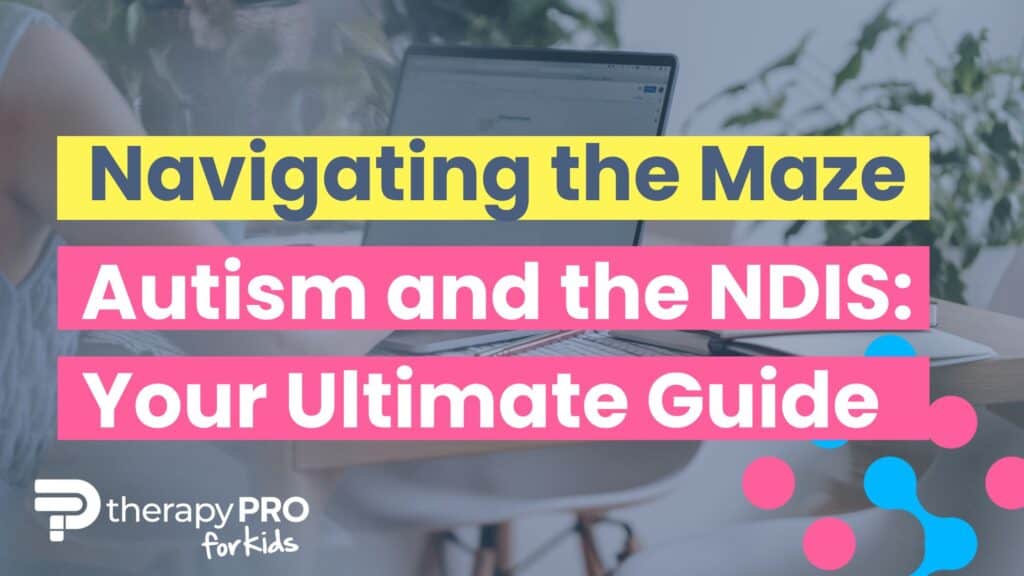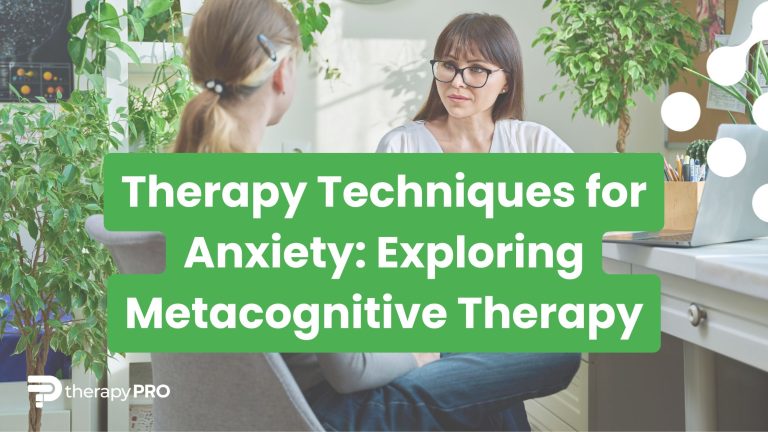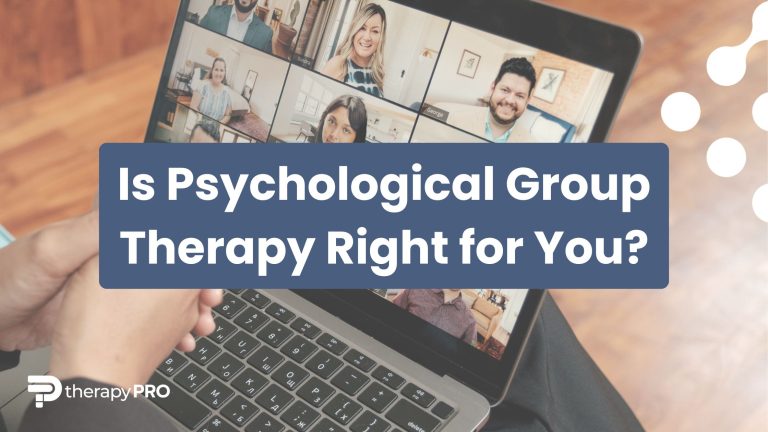Navigating the Maze: Autism and the NDIS – Your Ultimate FAQ Guide
When you first experience the world of autism and the NDIS, it can feel a bit like you’ve landed on another planet. There’s jargon to decipher, mountains of paperwork, and Google rabbit holes that seems to lead everywhere and nowhere, all at once. Not to mention the multitude of questions you may have about it all.
Don’t throw the towel in just yet! In this guide, we’ve captured all the frequently asked questions our therapists answer about the NDIS and autism.
Let us help you navigate the maze and hopefully leave you with more answers than questions.
Autism and the NDIS – Frequently Asked Questions
What is the NDIS?
The National Disability Insurance Scheme (NDIS) is a government initiative in Australia. It provides funding and support for people with permanent and significant disabilities, including autism.
Giving people choice and control over the support they need and want are at the heart of the scheme.
It’s what our therapists here at Therapy Pro are focused on with each and every one of their clients. They build out therapy plans that are personalised to each client and provide the support that may be needed to reach their individual goals.
Of course, this looks different for different people, and the disabilities they live with, including autism.
Does the NDIS support kids with autism?
To be eligible, your child needs to have a permanent disability that significantly affects their ability to take part in everyday activities.
Autism is a developmental disability that affects the way a person interacts socially and how they engage with their environment. There are some common signs of autism to look out for if you’re unsure if your child may be autistic.
When your child receives an autism diagnosis, it is a permanent, lifelong disability, making them eligible to access supports through the NDIS.
In addition, your child must also be an Australian citizen and resident and be aged under 65 when they first access the NDIS.
If your child is aged 0-7 years, you will need to contact an Early Childhood Partner; and for a child over the age of 7, you will need to contact a Local Area Coordinator (LAC).
How to apply for the NDIS?
First, you’ll need to gather evidence of your child’s disability and the impact it has on their life. This includes reports from medical practitioners or therapists. You’ll then, contact the National Disability Insurance Agency (NDIA) to start the application process.
If you suspect that your child may require an autism assessment, our Therapy Pro for Kids Assessment Clinic based in Melbourne is a good first step.
The multidisciplinary team comprised of occupational therapists, speech and language pathologists, and psychologists who all work together to assess your child and provide reports on their findings.
You can then take the reports and assessments to your paediatrician for a formal autism diagnosis.
How much funding does the NDIS give for autism?
The NDIS funds a wide range of supports.
These include:
- Therapies (like speech therapy, occupational therapy, psychology)
- Support with daily living skills
- Assistive technology
- Modifications to your home or car
- Community activities
On average, autistic children aged 0-7 receive approximately $16,700 per year under the NDIS.
However, bear in mind that because autism is a spectrum, the type and amount of funding your child might receive will depend on their individual needs and goals.
Can the NDIS fund school fees?
The short answer is ‘no.’
The NDIS doesn’t cover things like school fees or educational resources, as these are seen as mainstream or universal services, which are the responsibility of the education system.
What’s an NDIS plan and who manages it?
An NDIS plan lists the funding and supports your child will receive from the NDIS.
You will likely participate in a planning meeting with the NDIS when you first apply for the scheme. The plan will be created collaboratively with an early childhood partner, LAC, or plan manager.
Once the plan is approved, implementing, and managing the funds can be done by you (the participant), the plan manager, or the NDIA. The choice is yours!
What are some challenges parents and carers might face when dealing with the NDIS?
Due to the rigour surrounding the scheme, it is understandable that there is a lot of lingo and paperwork to navigate.
It can seem like a roller-coaster ride, but that is only because the scheme must be managed in a way that allows the most vulnerable in our community to access funding aligned to their disability. This doesn’t mean that you shouldn’t access the funding you and your child are eligible to access.
It is also understandable that receiving an autism diagnosis for your child may make you feel overwhelmed. Not only might you be learning about what autism means to you and your child, but you’ll also jumping into the intricacies surrounding a governmental scheme.
Give yourself the time to absorb all the new information and if you do feel like you are out of your depth, you can seek help from advocacy services, disability service providers, or other parents who have been in your shoes.
Are there any resources to assist parents and carers in understanding the NDIS?
Absolutely! The NDIS website offers plenty of resources, including fact sheets, webinars, and workshops.
You can also find local NDIS information sessions or contact an NDIS LAC for assistance.
Here are a few websites that you might want to bookmark:
Autism Awareness Australia is a not-for-profit organisation that provides information, support, and advocacy for people on the autistic spectrum, and their families.
Autism Spectrum Australia (Aspect) is a national provider of services for people on the autism spectrum and their families.
The Raising Children Network is a well-regarded and respected website that provides information and resources for parents of children from birth to 18 years old.
Can NDIS funding be used for an autism assessment?
In some circumstances, developmental assessments and reports based on functional need, which are used as supporting evidence to guide a formal diagnosis, may be funded by an individual’s NDIS plan, if it is in line with their goals and the NDIS Reasonable and Necessary criteria. You may also be eligible to claim the costs under Medicare.
Read all about how our assessment clinic can help. Our team can provide developmental assessments and reports based on functional needs, which can then be used as supporting evidence to guide a formal diagnosis. Our team is also available over the phone should you have any specific questions about the process or how to book in for an assessment.
Remember: You’re not alone
Understanding the ins and outs of autism and the NDIS can feel like trying to solve a Rubik’s cube blindfolded.
But remember, you’re not alone. There are plenty of resources, therapists, and people with lived experiences out there ready to lend a hand to support and guide you on your journey.
All children are unique, and your autistic child is no different in this regard. Yes, they are presented with challenges in how they engage with their environment, however as their parent, you can absolutely help them to manage these challenges. Lean on the support available to you.
If you suspect your child is autistic and you want to avoid long waiting times to access supports, then consider booking in an autism assessment at our Assessment Clinic based in Melbourne.
For parents who are not based in Melbourne, you can always connect with a psychologist from our Therapy Pro for Kids team who can support you in your home. Our team offer mobile-based services and can visit you at your location of choice, including your child’s school.
Our dedicated and experienced team is ready to help guide you through the process, supporting you and your child every step of the way.
Contact us below with any questions and our team can support:




